Camus and Fanon
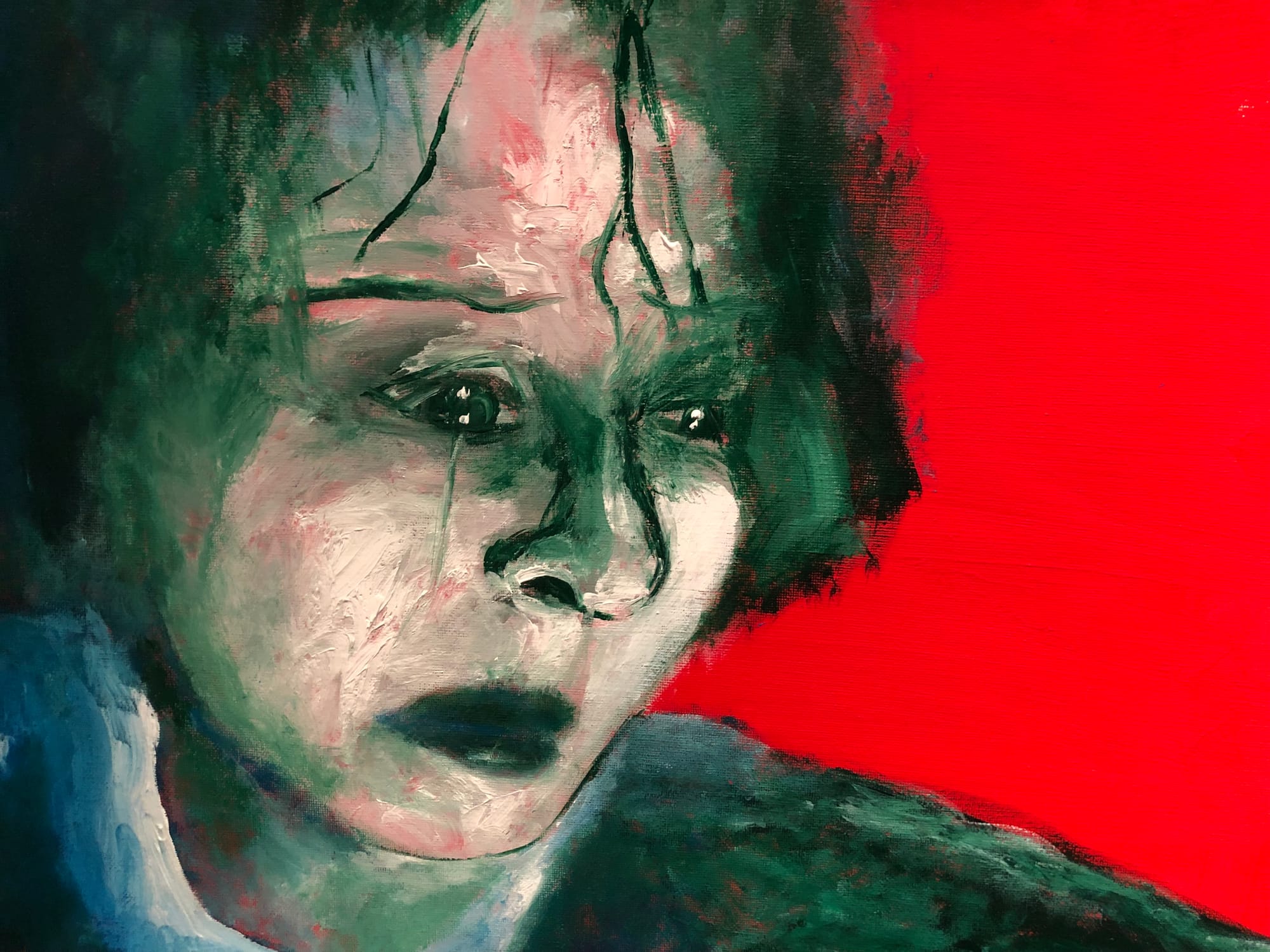
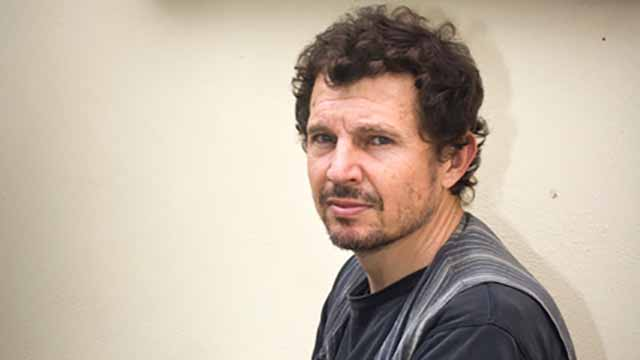
'Camus recognised the pitfalls of anti-colonial violence more accurately than Fanon, as were his predictions of what would come to pass if the revolution succeeded. Still, he naively and stubbornly hoped in vain that France could reform itself. On the other hand, Fanon held onto the illusory image of the glorious mujahidin until his untimely death in 1961, only a few months before the end of the war. He argues at length about the potential risks of anti-colonial struggles but fails to see how the new despots emerge not, as he argued, from the self-serving mediocre indigenous bourgeoisie that benefited from colonialism but from the ranks of the Front de libération nationale (FLN) after the more democratic wing of the movement had been silenced by both French and FLN murderousness and most especially after the murder of Fanon’s friend, Abane Ramdane, in 1957. '
'Lamentation is central. Even if murder is necessary, the fact that murders were committed should be lamented. Genuine lamentation is expressive of sacrifice. Vulgar consequentialism, by contrast, measures the good purely in terms of the ends being achieved, meaning there is no room for regret if one acts to maximise utility. Camus was no pacifist. He was part of the French resistance movement, which murdered Nazi collaborators. He argues explicitly against pacifism. His stance on pacifism is consistent with his ethics of moderation. The tension requiring moderation is between yogi and commissar, a distinction Camus borrows from Arthur Koestler. Yogis are those who refuse to dirty their hands and hence are impotent to stop others from murdering. They are bystanders and, therefore, are compromised by their inaction. Commissars are guided by a strict means-ends rationality that is blind to the fact that the value of the means is sometimes separable from the value of the ends. Yogis let others die, while commissars are, to borrow Camus’ vocabulary, unscrupulous. '
'There is, after all, a significant difference between the passive absorption of alien values and practices and the creative integration of these. What is evident in the end is that Fanon was able to draw from a vast array of traditions, both Western and, to a lesser extent, non-Western, to advance a novel vision. In this regard, his philosophy is eclectic. And I like this aspect of his thinking. One significant problem that affects thinking in Africa, particularly among the so-called “woke” crowd, is the ironic and self-defeating harking back to an era not tainted by the dirty hands of the West. It’s not possible or desirable to turn back the clock. What is possible instead is a creative engagement with the given. And what is given is given in a context one must be responsive to. And it seems that Fanon richly did this, even if, as already discussed, he was deeply mistaken in certain crucial respects and even dangerously so. '
Pedro Tabensky was born in Chile and has lived in the USA, Brazil, Australia, Israel, and the UK before settling in South Africa. He is the founding director of the Allan Gray Centre for Leadership Ethics (AGLE), which is part of the Department of Philosophy at Rhodes University. A central aim of the AGCLE is to teach ethics in ways that will not only help students reason more clearly about ethical matters, but will also help foster changes in patterns of affect and behavior. Here he discusses the contrasting approaches of Fanon and Camus to the Algerian War, Fanon’s ‘lyrical fever’ and his advocacy of violence, his bad faith, and the use of his idea of the ‘new man’, The Wretched of the Earth, Fanon’s liberation psychiatry, Fanon's relationship with Camus, the contrast between Fanon and Camus and their understanding of the Sisyphus myth, their relationship with Eurocentrism, vanguardism and leadership elitism, how education and ethics are related, ‘the practice of freedom’, Dewey, South African Universities , race, transformation, and institutional culture in the context of higher education, and ‘Realistic Idealism’.
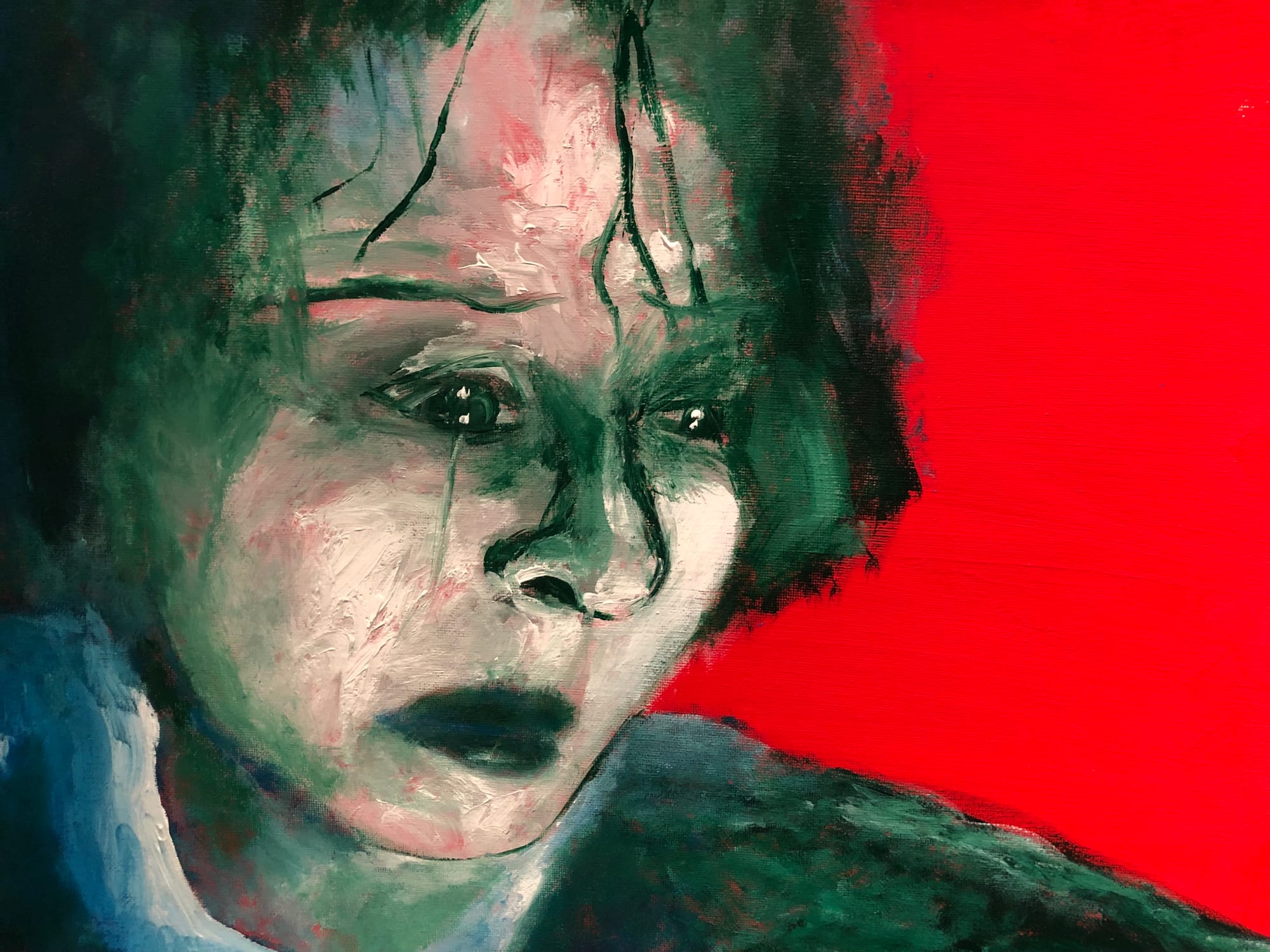
3:16: What made you become a philosopher?
Pedro Tabensky: Halfway through completing my fine arts studies, I decided to study philosophy because, to borrow from Socrates, I could feel the powerful presence of eros in me. From early on, I wanted to understand fundamental problems. Perhaps somewhat madly, I felt my life depended on addressing burning questions. Ever since I can remember, I have been attracted to the three spheres of value: the good, the beautiful and the true. I grasped them intuitively as deeply intertwined, as part of a single whole. Sitting on a rock next to a flowing river in the South of Chile or contemplating the stars, I felt connected with an astonishing beauty hiding great truths. Little did I know back then that the unity that preoccupied me was a central theme in Greek philosophy.
Philosophical reflection was, for me, a way of finding fulfilment, a way of being at home in a world that, in many ways, did not welcome me. I ordered my life around thinking. I find the idea of not thinking, of not pursuing questions as far as I can take them, inconceivable. I come from a family that was pushed around the globe by world historical events, and I have always felt like an outsider, an ideal vantage point from which to do philosophy. I offer here a short history of the displacements that helped shape my inquisitive nature, my need to make sense of things, and why I struggle to take things for granted. I was born in Santiago, Chile, to refugee parents in 1964.
My father’s grandfather from his mother’s side was probably a Polish Jew (from Łódź) who arrived in Shanghai pursuing business interests in 1908 and eventually met my grandmother’s mother, who had moved to Harbin as an orphaned child in 1906, born in Warsaw but living in St. Petersburg. She was Catholic of Polish/Italian stock. It was fortunate that my great-grandfather left Poland.
Three of my great-grandfather’s brothers disappeared during the Second World War, and it’s almost certain that he, too, would have disappeared were he not to have left before the war. My grandmother was born in Harbin into a family that had converted to Catholicism by then. As a young woman, she moved to Dairen (or Dalian) in 1938 and then to Shanghai in 1939 during the Japanese occupation of Manchuria. There, she met my grandfather, born in Moscow to Polish parents. They had four children, all born in Shanghai. The family had to endure the Japanese invasion of Shanghai during the Second World War. When Mao Zedong came to power, my father’s family became destitute. However, financial decay was already underway since my great-grandfather was bankrupt years before, thanks to the White Russians confiscating a cargo of goods.
Eventually, my father and his direct family were put on a ship headed for South America in 1953. They would have to eke out an existence in a strange land, penniless and without knowledge of the local language or culture. My mother was born in Budapest, Hungary, 11 days before Hitler decided to deal with the Jewish problem in Hungary once and for all and invaded Hungary on March 14, 1944. All Jews from outside Budapest were wiped out, and a train line to Auschwitz was being prepared to take all Budapest Jews to the showers. Fortunately, the war ended before this could happen. My mother and her mother were thrown into the Budapest ghetto during the invasion, and somehow, my grandmother managed to keep my mother alive. After forced labour in Poland, my grandfather from my mother’s side was sent to Mauthausen and Gunskirchen, a Mauthausen sub-camp. He survived, perhaps because he was a tailor, a valuable skill for the Nazis, although three of his siblings were not so lucky; one brother died in forced labour, and one was sent to a concentration camp (I don’t know which one) and a sister was sent to Auschwitz never to be seen again. My mother’s family stayed in Hungary—in Soviet Hungary, to be precise—until the bloody 1956 revolution and then fled the country, walking to Austria in the dead of night.
In 1957, after spending a few months in a refugee camp in Salzburg, they were shipped from Genoa to Buenos Aires and then crossed the continent by train to Santiago, Chile, an unknown land, with nothing but what they could carry with them. My parents met at the university in Santiago. Both were studying physics. When I was three and my sister was one, my father got a Ph.D. scholarship in Berkeley, so we headed to the US. I learned English among the Berkeley hippies in the late 60s and early 70s. But I was too young to grasp the hugely significant period in the history of black emancipation unfolding around me. The only memories I have, coloured and refreshed by my father's photographs from the period, are of black and white stoners mingling in and around campus.
After Berkeley, we moved back to Santiago. Salvador Allende and his Popular Unity Government had already been elected, and two years later, Augusto Pinochet orchestrated his bloody US-backed coup on September 11, 1973. In 1975, we moved to Brazil for a year and a half and then returned to the US, this time to Princeton for two and a half years. Then we returned to Chile, and I spent my teenage and young adult years under the dark cloud of a ruthless dictatorship. Two friends of mine and the wife of one of them were tortured and had to go into exile. I completed my first degree in visual arts (specialising in painting) at the Catholic University of Chile (which was run by the Opus Dei at the time—a branch of the Catholic church that supported Pinochet).
But the philosophy bug bit me, and I needed to find a way to pursue my dream; despite that, I was doing well in the art scene and starting to make a career for myself. In those days, I was an ethical nihilist. I struggled to make sense of the contradiction between a visceral moral outrage at the surrounding mayhem and my inability to justify my indignation. This contradiction manifested in me as an inner storm, which helped propel me toward philosophy. It is fair to say that I became a philosopher because I was confused. Since I had the travel bug and the philosophy bug, I decided to emigrate to Australia to try out my luck with philosophy (along with my first wife). Pinochet’s Chile was not philosophy-friendly, so not much was happening in the Chilean philosophy scene, and I needed to find a way of funding my studies, something Chile could not offer me.
So I left, burnt out by so many years of violence and uncertainty, with the idea of never returning. I was 26. I spent a decade in Australia, doing my undergraduate degree at the Australian National University in Canberra and my PhD at Murdoch University in Perth. I then spent a year at the Hebrew University of Jerusalem as a postdoctoral fellow. I was fascinated by the troubled Middle East and its history, and I may have stayed there if academic job prospects for foreigners were not so bleak. I returned to Australia as a research associate at the University of Sydney. I was offered a job at the University of Pretoria a year later. I spent three years there. It was hard. I have never encountered so much racism in my life besides high levels of academic mediocrity, with far too many academics in the Humanities chosen, predominantly because they would not rock the apartheid boat. It was a formative period, however.
Let me call it my apartheid 101 phase. I made mistakes in this period, which are worth highlighting. I stood on high moral ground, self-righteous and arrogant as if I did not belong to the thick soup of humanity and was unblemished by the human stain. After three years, I could take it no more and left for England with Sally Matthews, whom I met and married while working at the University of Pretoria. I worked for a year and a half at the University of Birmingham while Sally worked on her PhD thesis there. Luckily, perhaps miraculously, we both got jobs at Rhodes University in 2006 and were happy to return to South Africa from a country that was in many ways hostile to us. Rhodes University, like all English-medium universities in South Africa, were significantly less entwined with the apartheid state than were the Afrikaans-medium universities such as the University of Pretoria and, even though I arrived in South Africa a good many years after apartheid had ended, the legacy of apartheid was very much alive.
I should mention that English-medium universities were far less entwined with the apartheid state, but their complicity in the injustices should not be forgotten. Many years have passed, and I am still here. Despite my itchy feet, I am still here. In a way, South Africa’s woes have become my own; in a way, they never will. Lacking a sense of belonging anywhere has helped mould me into a ruthlessly independent person, which is good for philosophical work but perhaps not so good in other ways. Living an unmoored life can sometimes be disconcerting, yet I am happy not to have deep roots anywhere. This is a mixed blessing that has made me into who I am today and has coloured my style of doing philosophy. It has given me the freedom to avoid a move far too often made in South Africa, of justifying one’s commitments by appealing to one’s cultural norms, as if by happenstance one was born into the nation of the all-seeing.
I was happy to abandon Chilean sexism and racism against Amerindians, the bigotry that has even found its way into the language. And I feel no urge to defend the actions of those who harm others in the name of Judaism. My history has helped shape the way I do philosophy. I have never enjoyed puzzles or games. I engage in philosophical inquiry to address concrete problems that speak to my immersed reality. In this regard, I follow the lineage of those who, like Frantz Fanon and Albert Camus, wrote to understand their predicament, always with skin in the game. In this regard, South Africa has been good to me and has helped bring out what was already there in full force. South Africa is a tormented country, trapped between an abject past and the living tissue of pain that informs so much of contemporary society. And I am the person I am today, having taken the path I have because my family and I have been through a lot.
We have suffered much at the hands of butchers and world-historical upheavals, and this has made me particularly aware that human beings—whichever culture they identify with or whatever religion, if any, they happen to have—are not that nice. It is mainly because we are not that nice that ethics is a matter of concern to us. In other words, anyone who values ethics should be slightly misanthropic. In a Nietzschean spirit, we should aim to be joyful pessimists.
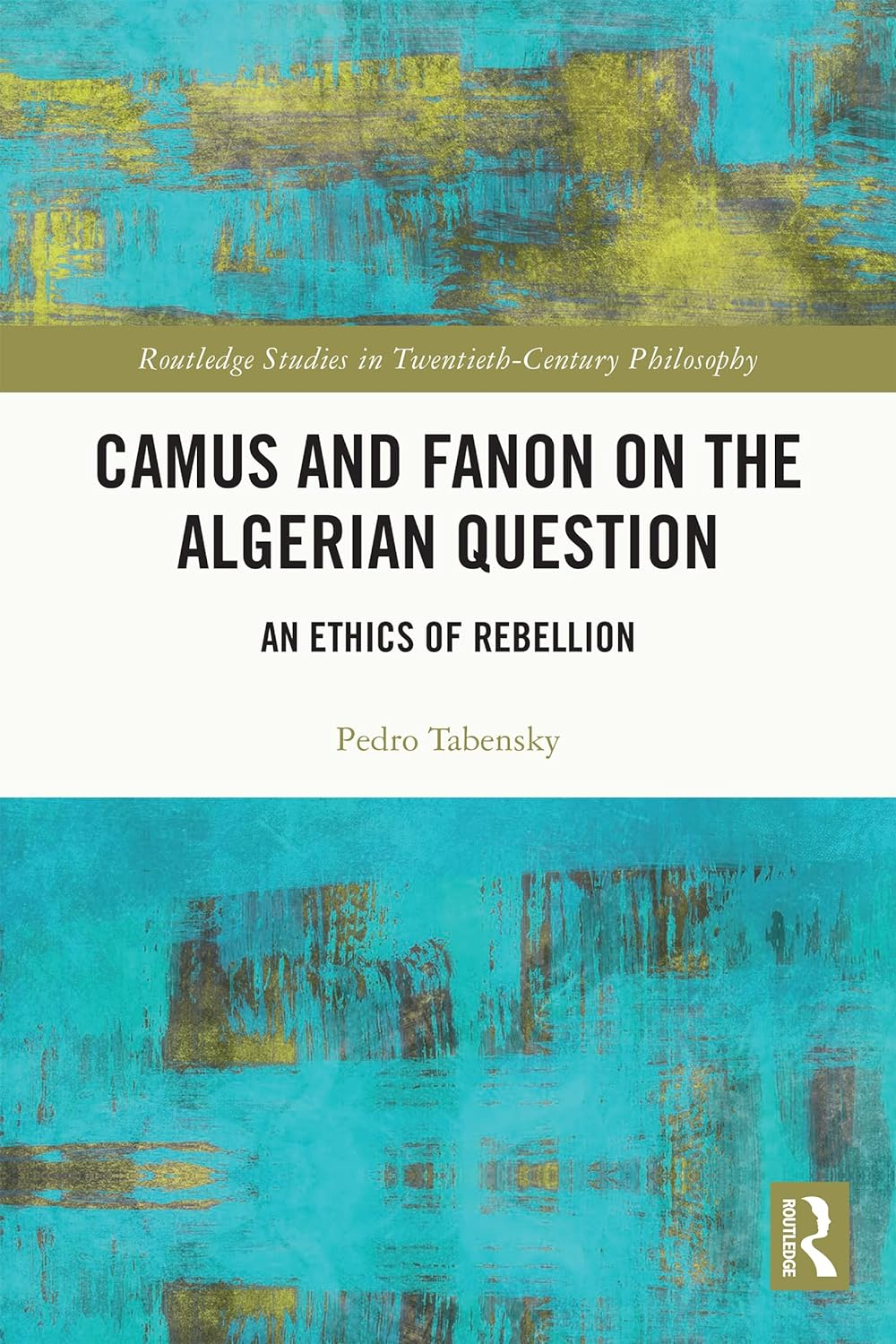
3:16: You’ve written a book contrasting the approaches to the Algerian War of Independence by Camus and Fanon, seeking to outline an ethic for struggle. So, for the uninitiated, can you first sketch what the Algerian struggle was to these two thinkers and why you think the contrast helps clarify your ethical interest?
PT: The Algerian War of Independence (1954 – 1962) liberated Algeria from France, only to fall into the hands of indigenous despots that remain in power today. One rarely acknowledged fact is that the Algerian fighters murdered far more Muslim Algerians than pieds-noirs (Algerians of European descent) and French put together. Mouloud Feraoun’s haunting diary attests to horrors perpetrated by both French troops and the freedom fighters while at the same time arguing that liberation from France’s yoke was imperative.
The War of Independence was one of the bloodiest anti-colonial wars of the past century. Albert Camus and Frantz Fanon were deeply invested in the liberation struggle, but their outlooks differed considerably. Camus recognised the pitfalls of anti-colonial violence more accurately than Fanon, as were his predictions of what would come to pass if the revolution succeeded. Still, he naively and stubbornly hoped in vain that France could reform itself. On the other hand, Fanon held onto the illusory image of the glorious mujahidin until his untimely death in 1961, only a few months before the end of the war. He argues at length about the potential risks of anti-colonial struggles but fails to see how the new despots emerge not, as he argued, from the self-serving mediocre indigenous bourgeoisie that benefited from colonialism but from the ranks of the Front de libération nationale (FLN) after the more democratic wing of the movement had been silenced by both French and FLN murderousness and most especially after the murder of Fanon’s friend, Abane Ramdane, in 1957.
Ramdane was known as the architect of the FLN and was murdered by the wing of the FLN that did not respect the democratic impulses that set the revolutionary struggle in motion. The only record we have of Fanon lamenting Ramdane’s murder is by Simone de Beauvoir, with whom Fanon confided this deep secret. Fanon seemed to know that not being discrete could cost him his life. But it puzzles me how he could continue supporting a movement knowing that they murdered their people en mass. Indeed, the motto, penned by Jacques Mallet du Pan, that “like Saturn, the Revolution devours its children" could not be more accurate in the case of the Algerian war.
Purges within the movement numbered the tens of thousands. But Fanon’s silence regarding Ramdane’s murder could also be explained by his unrealistic hope that the peasants, his glorious mujahadin, those who had nothing to lose and hence formed the backbone of the movement, would triumph over the other forces competing for supremacy during the war. Fanon did not, perhaps could not, recognise that the unspeakable brutality unleashed by the FLN in response to one hundred and thirty years of French brutality would, if it managed to defeat France, almost certainly result in a change of personnel rather than the radical social transformation that Fanon envisaged. And, despite the evident decay within the FLN, Fanon could not incorporate these insights into his reflections. He expressed reservations in private but never straightforwardly denounced the revolutionary movement he threw himself into wholeheartedly.
I imagine that the cost of a full admission was too hard to bear, in addition to the genuine possibility of going the way of Ramdane. Both Camus and Fanon’s distortions arguably stem from their own psychological needs. Camus needed France to redeem itself, for he rightly saw that the Algeria he identified with – an Algeria that welcomed pieds-noirs, most of whom, according to Camus, were not brutal ultras or exploitative colons and just wanted to get on with their lives – needed France to remain (albeit with commitments consistent with its professed republican commitments). Indeed, the defeat of France led to one of the greatest emigration waves of the 20th century, in which almost all pieds-noirs had little choice but to leave for Europe. The alternative would almost certainly have been death.
Evidence for this is the revenge murders of tens of thousands of harkis (Muslims who fought on the side of France during the War) and their families in the aftermath of the war, abandoned to their fate by the French, knowing full well what would happen to them. As someone deeply committed to justice, Camus needed a reformed France, a France that, tragically for Camus, could not be. On the other hand, Fanon needed to see a defeated Europe and a victorious “third world”. He needed the “wretched of the earth” to ascend, that is, not only to manage to run their affairs but also to do so without the defeated mindset of the oppressed. He naively thought that the revolutionary movement's strength through solidarity, solidarity in violence, would restore the Muslim Algerian population to health.
Camus and Fanon’s wishes remained unfulfilled, and Algeria, as Claude Lanzmann put it, remains a country “hobbled and lame” today. I have been reading Frantz Fanon and Albert Camus for decades, but I never seriously connected them until I started working on Camus and Fanon on the Algerian Question: An Ethics of Rebellion (New York: Routledge, 2023). Oddly, these two towering intellectuals have rarely been engaged “contrapuntally” (to borrow Edward Said’s expression). And this is a shame for their views could be enrichened by inter-pollination. Both of them wrote philosophy that had a very direct bearing on their lives. For them, philosophy without skin in the game was inconceivable.
Philosophy, for them, must always be in rich dialogue with actual experience. Both of them were invested at a personal level in the Algerian War of Independence (1954-1962). Fanon, born and raised in Martinique, was deeply impacted by European racism. He experienced racism first-hand as a Second World War soldier fighting what he thought, before experiencing French racist hypocrisy against black soldiers, was a just war to liberate France from the Nazi yoke and then again while studying psychiatry in France. Once the curtains of racism fell, Fanon saw clearly that the Second World War was a war between racist powers.
On the other hand, Camus was a pied-noir brought up in poverty in Algiers. Even though he spent much of his adult life in France, in part because his life in Algeria was made difficult by French colonial authorities on account of his early journalistic writings denouncing the brutal conditions of Muslims in occupied Algeria, he understood his identity to be deeply tied to the fate of his place of birth. He fought vigorously and in vain for a new French Algeria without the injustices that blighted the land. His naivety about France’s ability to reform itself was as powerful as the naive faith Fanon placed in the mujahidin.
Arguably, the main reason why these authors are rarely put into conversation with one another is that they attract different audiences. Fanon is read far too often uncritically by radicals seeking the voice of a saviour. His often outrageous views seem largely ignored or tamed within philosophy, with important exceptions (Albert Memmi, for instance). Historians and sociologists, more interested than philosophers in relating ideas with the context in which they originate, tend to be less sanguine (consider, for instance, historians Alasdair Horne and James D. Le Sueur, in addition to sociologist Pierre Bourdieu).
Indeed, Bourdieu’s critique of Fanon (and his ally, Jean-Paul Sartre) is brutal:
‘What Fanon says corresponds to nothing. It is even dangerous to make the Algerians believe the things he says. This would bring them to a utopia. And I think these men [Sartre and Fanon] contributed to what Algeria became because they told stories to Algerians who often did not know their own country any more than the French who spoke about it, and, therefore, the Algerians retained a completely unrealistic utopian illusion of Algeria. … The texts of Fanon and Sartre are frightening for their irresponsibility. You would have to be a megalomaniac to think you could say just any such nonsense.'
Camus offers a nuanced philosophy of moderation, but he is known more as a great novelist than a philosopher (he was also a playwright, actor, director, journalist and essayist). The fact that he was deeply concerned with the question of colonialism, particularly in Algeria, is less widely known or studied, perhaps because the idea of a just postcolonial France ruling Algeria is inconceivable by most. But what if France reformed itself and Muslim Algerians decided that Algeria should remain an integral part of France? In that case, a colonial power could cease to be one, and the former colony could stay in power in its former colony. This was Camus’ stubborn, unrealistic hope.
Said engages with both Fanon and Camus, but his account of Camus is unsatisfying, and he views Fanon hagiographically. As mentioned above, Albert Memmi also engages with both. He is critical of both, but he seems more preoccupied with discussing the psychology behind their philosophies than their philosophies as such. And Sartre engages with both and misreads both. Reportedly, on his deathbed, Fanon read Sartre’s preface to Wretched of the Earth and, despite the profound influence Sartre had on him, was unhappy with Sartre’s crude understanding of anti-colonial violence. Camus is somewhat to blame for being misread as an apologist of colonialism because, as his friend Mouloud Feraoun thought, at bottom, and despite the richness of his thought, he seemed incapable, even to the point of contradicting his philosophy, of conceiving of an Algeria liberated from France. He naively thought France could reform itself in line with its professed ideal of liberté, egalité, fraternité.
The most shameful notes in his otherwise admirable philosophy speak to this deep-seated colonial, indeed Eurocentric, prejudice. But to claim that he had this prejudice should not be a reason to dismiss his philosophy tout court, concluding all too quickly, as Fanon, Sartre and Beauvoir do, that it offers nothing that can be used by the disinherited to transform their situation. Even though both Fanon and Camus engaged richly with the Algerian war and the horrors of colonial dispossession, and even though they were contemporaries concerned with the same historical events, neither engaged with the other in any substantial way. There is plenty of evidence that Fanon knew about Camus and his all-too-brief comments and allusions to him are disparaging. Yet, there is no evidence that Camus knew about Fanon (Fanon’s fame is largely posthumous, and Camus died almost two years before Fanon).
Despite my criticism of Camus and Fanon, one must recognise that both were dealing with an impossibly difficult situation, perhaps even an unresolvable dilemma where one is damned if one does and damned if one doesn’t. Fighting colonial brutality with anti-colonial brutality could not bring justice to Algeria, nor, it seems, could more peaceful means. Moderates tried for decades and failed to get France to change its brutal ways peacefully. Even the most famous moderate politician, Ferhat Abbas, ended up joining the ranks of the FLN, seeing that negotiations led nowhere. However, engaging in a revolutionary war where brutality is met with brutality invariably brings about the cannibalisation of the ends by the means deployed, a central theme in Camus’ philosophy of moderation.
In Hannah Arendt's words, borrowed from her On Violence, where she criticises Fanon’s view on revolutionary violence:
'The rarity of slave rebellions and of uprisings among the disinherited and downtrodden is notorious; on the few occasions when they occurred, it was precisely “mad fury” [these are Fanon’s words] that turned dreams into nightmares for everybody. In no case, as far as I know, was the force of these “volcanic” outbursts, in Sartre’s words, “equal to that of the pressure put on them.” To identify the national liberation movements with such outbursts is to prophesy their doom—quite apart from the fact that the unlikely victory would not result in changing the world (or the system), but only its personnel. And indeed, this is what happened in Algeria, which exemplifies the tragedy of “slave rebellions”. '
Bringing Camus and Fanon in conversation with one another may not help us find a clear way out of the dilemma. Still, it does help us better understand the constraints under which one must work to find a viable solution if, indeed, one can be found. I wonder if any just resolution existed for Algeria. Still, I am also sceptical that the solution sought by the FLN was the least harmful of available alternatives, all invariably bad. Camus’ philosophy of moderation appeals to me. Some have described him as a radical centrist, and I think this description is adequate. Camus was both an advocate of moderation and an advocate of radical change. How can this be?
Part of the answer is that his radicalism pertains to an ethical outlook that avoids the aims of justice being cannibalised by the means utilised to achieve them. His radicalism is grounded in an ethic of moderation that recognises the interdependence of ethical concepts. The interdependence is not merely conceptual. It is also, and primarily, practical. His principal example is that of the complex relationship between freedom and justice. These two concepts moderate each other. By this, Camus means that freedom without justice becomes libertine, and justice without freedom slides into tyranny. These concepts are both in tension with one another and are mutually constitutive. That is why moderation is necessary. And this is true of the ethical sphere as a whole.
According to Camus, the ethical sphere, which he understands as a holistic system of concepts that must always mediate one another, demands lucid engagement. Lucid engagement requires that the force of all ethical concepts is always in operation in our lives, and nowhere is this truer than in war. In war, the temptation is to forego the influence of some values for the sake of others, such that the entire sphere of values becomes dysfunctional. If, for instance, one sacrifices freedom temporarily or the respect for life, then justice slides into excess and becomes tyranny. This is indeed a contemporary rendition of Aristotle’s doctrine of the mean, where ethical concepts must be understood as forming part of a sphere that must be kept intact, lest it break apart entirely. Likewise, Camus baulked at means/ends thinking, arguing that means can cannibalise aims, which is indeed what happened in Algeria. One avoids this by always considering what is being sacrificed with a given action.
Lamentation is central. Even if murder is necessary, the fact that murders were committed should be lamented. Genuine lamentation is expressive of sacrifice. Vulgar consequentialism, by contrast, measures the good purely in terms of the ends being achieved, meaning there is no room for regret if one acts to maximise utility. Camus was no pacifist. He was part of the French resistance movement, which murdered Nazi collaborators. He argues explicitly against pacifism. His stance on pacifism is consistent with his ethics of moderation. The tension requiring moderation is between yogi and commissar, a distinction Camus borrows from Arthur Koestler. Yogis are those who refuse to dirty their hands and hence are impotent to stop others from murdering. They are bystanders and, therefore, are compromised by their inaction. Commissars are guided by a strict means-ends rationality that is blind to the fact that the value of the means is sometimes separable from the value of the ends. Yogis let others die, while commissars are, to borrow Camus’ vocabulary, unscrupulous.
In Camus' words, both Yogi and Commissar are “ineffective”: “The former chooses only the ineffectiveness of abstention and the second the ineffectiveness of destruction”. Purity is impossible in this life, but one must always carry the burden of one’s sacrifices to what is implied by the outrage that sets our protests in motion. What is implied is the system of values constituting human existence, which, for Camus, is a field of force with different concepts vying for our attention, tempting us to ignore some for the sake of others. This moral outlook is attractive. It may not end all excesses, but it can serve as an effective guide to action, avoiding the extremes of indiscriminate murder and inaction. Our ethical frameworks reveal themselves in our protestations, our heartfelt calls for justice, and our drawing of the line and proclaiming that enough is enough.
One cannot clamour for a purely private justice. Instead, moral outrage points to specific commitments that can only be ignored at the price of a loss of lucidity, that is, at the cost of irrationality. And one of these commitments is the commitment to universality. Camus formulates his own version of the cogito: “I rebel—therefore we exist”. The existence here is that of our shared humanity. When I claim that I have been the victim of injustice, I also argue that everyone should recognise this. Its warrant is lucid agreement. This sensitivity to how moral concepts function in our practical lives is central to Camus’ understanding of the moral order and, more specifically, how to act when the going gets rough. We must attend to what is implied by our protests.
Similarly, we must also be attentive to the role of mediation and how ethical concepts are in tension with one another, tempting us to forget the pull of some concepts for the sake of others. Attention to this can help us avoid the excesses perpetrated in the name of justice or freedom. One thing that motivated me to put these two authors in conversation with one another was a paradox I could not resolve, and, as it turns out, neither could they. Both Fanon and Camus were firmly committed to justice, and both offered very different accounts of how social change can be brought about. And the bloody Algerian War of Independence was a perfect example of a general problem. Violence seemed to be the only way to overcome colonial ruthlessness. Yet, as Hannah Arendt, Camus and others recognised, violence invariably leads to a change of guard rather than a system change. If deployed to achieve long-term aims, it is a force that takes on a life of its own, destroying the prospect of achieving the aims for which it was deployed in the first place. If one does nothing, one becomes a bystander or accomplice of colonial injustice. And if one attempts to stop colonial violence by the only means it understands, a new form of tyranny will invariably emerge.
My perspective on the war of Algeria is not primarily historical. I am interested in how to help create a more ethical order in the face of radical power imbalances. I am not only interested in the question of violence. I am more generally interested in how to struggle for the good. In the end, I side more with Camus than Fanon. Although Camus could not imagine a French-free Algeria, he offers us an attractive philosophy of rebellion. Fanon’s radicalism, in light of the radical brutality of France, is understandable. Still, his utopian dreams of a new man born from those who have nothing to lose was shown to be mistaken by the kleptocratic dictatorship born, not of the mediocre bourgeoisie, but of the class of the most ruthless that sprung from the revolution.
3:16: What are we to make of Fanon’s ‘lyrical fever’ and his advocacy of violence, his bad faith, and the use of his idea of the ‘new man’? You see him as idealising the struggle, don’t you?
PT: It seems that Albert Memmi is right to claim that: When social despair is too great, men succumb to the temptation of messianism. They are gripped by a lyrical fever, by a manichaeism that constantly confuses ethical demand and reality. Paradoxically, they also fall into revolutionary romanticism, with an unshakeable belief in radical and final change. Frantz Fanon’s success is probably due more to this uncompromisingly prophetic attitude, than to his particular theses or the correctness of his analyses. So that here, as in the rest of his life, it is his failure itself that has become the source of his far-reaching influence. There is plenty of evidence that Fanon “confuses ethical demand with reality” because he is gripped by a “lyrical fever”. His “uncompromising prophetic attitude” is evident from his writing. He speaks of “the combatant’s limitless fecundity and dynamism” and the “glorious fighters”. These descriptions are far removed from reality. Claude Lanzmann speaks of Fanon’s “prophet’s stance”.
Fanon describes his own “lyrical fever”, helping to explain why those needing radical consolations will find it easy to read him as a prophet. For instance, Black Panther Stokely Carmichael (who renamed himself Kwame Ture) describes Fanon as a “patron saint”. One could blame Carmichael’s deep need for a prophet for this strangely anti-intellectual reading of Fanon, but there are reasons to think that Fanon invited this interpretation. In Fanon’s words, as reported by Francis Jeanson, editor of his first book, Black Skin, White Masks: I am trying to touch my reader affectively, or in other words irrationally, almost sensually. For me, words have a charge.
I find myself incapable of escaping the bite of a word, the vertigo of a question mark. The confusion between “ethical demand and reality” is dangerous, for it can lead some, Fanon included, to advocate bloodletting for a dream that is not grounded in reality, for an unrealisable fantasy and, relatedly, for a rose-tinted reading of the allegedly glorious fighters, those belonging to the military wing of the FLN, the Armée de libération nationale (ALN). Fanon’s silence about Abane Ramdane’s murder puzzled me and motivated me to explore Fanon’s thought in light of the events that took up the last few years of his tragically short life. What was this silence about, I asked myself?
Then, other questions made their way into my mind. Why did he falsely report in the El Moudjahid (the propagandistic publication of the FLN) on the Melousa massacre, accusing, with absolute certainty and incomplete evidence, that it was a French job? It was not. It was the bloodiest episode in a long side battle between two rival nationalist groups, the FLN and the MNA (Mouvement national algérien), during the liberation war. Fanon is silent about internecine rivalries and the FLN’s rivalries with the NMA, except to compare the MNA with the harkis and lump them together as counterrevolutionaries. And he should have included an account of the feuds within the FLN, a common feature of revolutionary movements from the French Revolution onwards.
He is also dishonest at times. He praises the GPRA (the Gouvernement provisoire de la République algérienne) for its integrity, knowing full well that this was not so, as reported by Simone de Beauvoir and Jean-Paul Sartre, among others. In his forward to The Wretched of the Earth, Homi K. Bhabha argues that, [t]hose who claim to follow in Fanon’s footsteps it is often said, only absorb his abstract arguments and stirring sentiments; they fail to understand his selfless engagement with the Algerian War of Independence and turn a blind eye to his failure to consider the possibility that a state built on the revolutionary violence of the FLN could slide more easily into state terror and religious fanaticism. Bhabha also claims that in Tunis, Fanon was known as “the pamphleteer of Martinique”.
His dishonesty, naivety, particularly about the peasant fighters, and his half-truths point to an uncomforting tension in Fanon’s writing. He often confused genuine reflection with propaganda and wishful thinking and was often carried away by a vision that did not accord with the facts. Those who knew him well, such as Serge Michel and Alice Cherki, underscore his naivete and tendency to idealise. Indeed, in Cherki’s words, “All those who knew him, and not only his detractors, agree that he was quick to idealize”. Fanon probably borrowed the idea of a “new man” from Marx. The idea is that of transformed persons no longer stifled by oppression. This utopian ideal expresses deep pessimism towards those eking out an existence in the harsh conditions created by France. It represents a yearning for a world that is not. “New man” talk points to the confusion, highlighted by Memmi, of ethical idealisation with an analysis that pays close attention to human constraints.
Fanon’s “new man” was never to be. Instead, we have those stifled by racist oppression and the difficult question of how to build a nation freed of French tyranny with those who are, according to Fanon’s admission, unable to govern themselves until after a revolutionary process has taken its course. The problem is that the revolutionary process Fanon thought was necessary for upliftment did quite the contrary. “New man” talk, embodied in Fanon’s oeuvre, points to the limits of utopian thinking. My interest, contrary to Fanon’s, is how to help build a social order that is genuinely transformative but not utopian. For this, I sought guidance from Camus’ ethics of moderation, as described above.
Alice Cherki (2006: 106), who was close to Fanon during the revolutionary phase of his life, points to his bad faith (dishonesty and wishful thinking): The circumstances surrounding Abbane’s [more often spelt “Abane”] death had been kept under wrap but not from Fanon, who was more or less in the know; this episode … was an especially harrowing one in Fanon’s life as a militant. But Fanon endured and continued to share his political concerns. …. He never publicly dissociated himself form the struggle to which he was deeply committed. Consequently, in his writing and public statements he was always emphatic about the unity of the Algerian nation, placing it front and center and above the machinations and the divisiveness, he praised the FLN and denied the internecine struggle that plagued the ALN inside the country proper, even though he knew the opposite to the be the case. … By this point, the injunctions that ruled Fanon’s public life were quite clear-cut: to be a disciplined militant for the cause he upheld and to look to the leadership, despite its many missteps, for the revolutionary virtues with which he would increasingly try to identify.
3:16: Why do you say The Wretched of the Earth fails to give an account of the corrupting force of the revolutionary movements and the role of elites and vanguard movements within these movements? Why did Fanon not see this?
PT: I have already addressed this question above. His loyalty to the movement, despite his apprehensions, was absolute. He was too concerned with giving us a utopian vision to see how this vision would be corrupted by how it was pursued. He could not see a way out that was not violent, and he may have been right about this, so, instead, he constructed for himself a picture of redemption that was destined to fail for reasons provided by Camus. It failed because the way redemption was sought undermined the aims being pursued. It failed because it violated Camus’ ethics of moderation. It failed because the brutality needed to evict France was highly corrupting. It demanded that basic human decency be suspended and replaced by a means-end instrumentalism where human beings become a mere means to achieving a distant aim, thus undermining the possibility of achieving those aims.
This instrumental logic is chillingly expressed by Saadi Yacef, commander of the ALN, during the Battle of Algiers, the principal battle of the war. In a 2008 interview, he stated,
'At the time, if I had had the money, I would have paid the French soldiers so that they would torture Algerians. Why? Because when an Algerian dies as [a] result of torture, he has ten to twenty relatives who will avenge his death and join the FLN.'
Fanon failed to see the chilling logic expressed by Yacef’s words. He saw instead, and as first quoted above, “the combatant’s limitless fecundity and dynamism” and the “glorious fighters”. He needed this redemptive story. It gave solace to a desperate man whose desperation was most acutely expressed in his first book, Black Skin, White Masks, most notably in the book's most famous Chapter, “The Fact of Blackness”. The chapter ends with him weeping, unable, as he brilliantly explores, to find a way out of the predicament of living as a black man in a white supremacist world. Fanon did see the corruption of the GPRA, but he chose, perhaps because his life depended on it and maybe because it was a truth too hard to bear, to praise where condemnation was warranted.
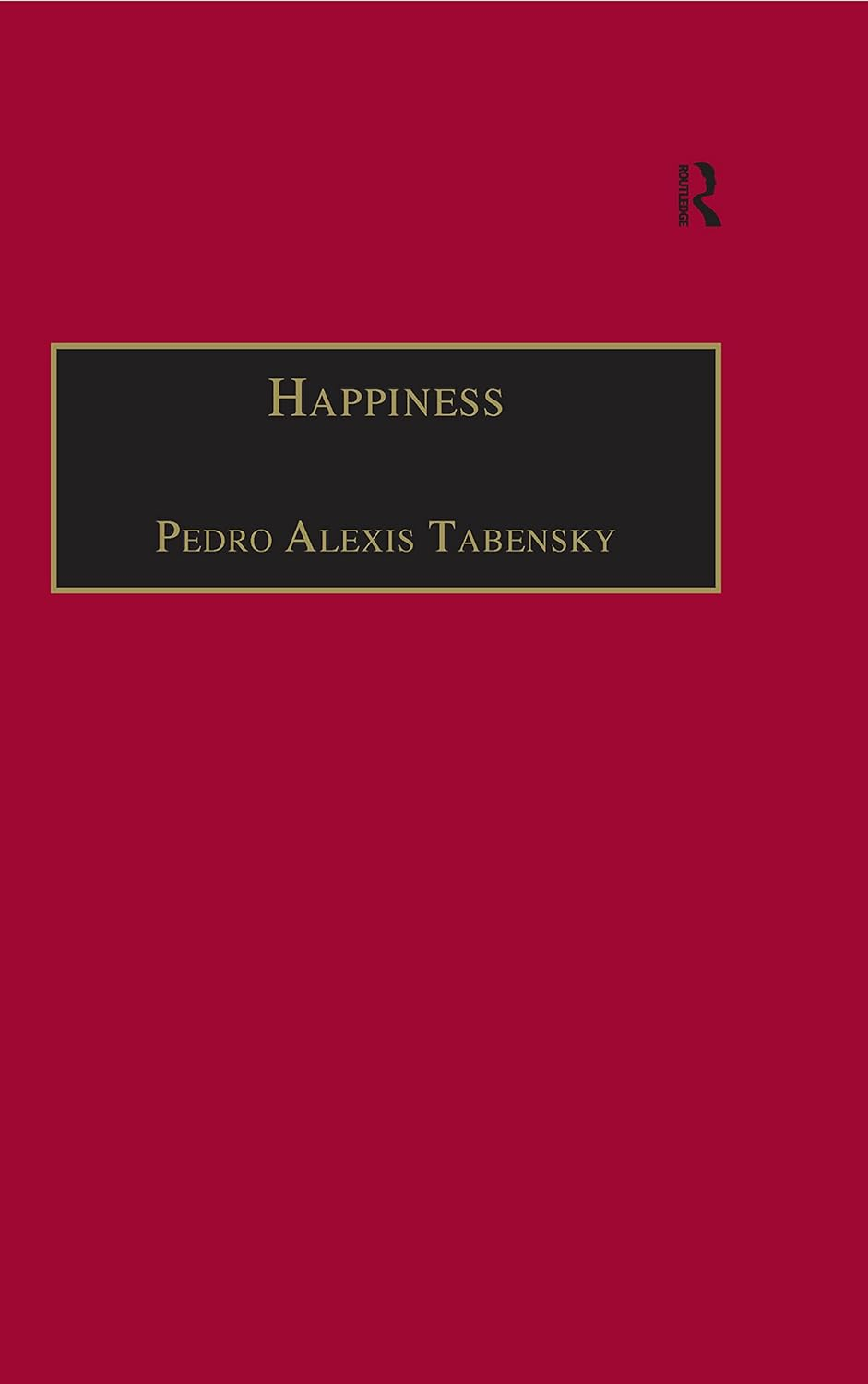
3:16: What’s Fanon’s liberation psychiatry, and why is it flawed?
PT: His liberation psychiatry is interesting, but it did not work. Fanon was influenced by institutional psychotherapy, particularly by the work of Françios Tosquelles. In a nutshell, institutional psychotherapy weds Freud and Marx. It argues, plausibly, that psychiatric patients cannot find a cure for their pathologies—which Tosquelles and Fanon thought amounted to desalienation—in environments that are not conducive to liberation. Fanon saw that his work in Blida-Joinville, the main psychiatric hospital in Algeria where Fanon worked as the head of psychiatry, could not succeed in dealing with the pathologies stemming from the unhealthy interactions between oppressor and oppressed. So, he imagined the entirety of Algeria to be a kind of poorly run psychiatric hospital, and he set out to transform it by revolutionary means.
He abandoned his post in Blida to contribute to transforming the fabric of Algerian society. And, as patients in Blida needed to live in conditions that motivated liberation, so did Muslim Algeria's need to act in ways that would promote their liberation. Fanon thought this could be achieved by joining the ranks of the FLN and fighting for liberation in solidarity with Muslim Algeria, mainly peasants and intellectuals. Decolonisation, for Fanon, was a process of liberation, a process of finding health, understood as disalienation, together in building a new democratic Algeria through the violent process of ridding Algeria of the oppressor-oppressed dynamic. Fanon’s revolutionary psychiatry is flawed, but many of the ideas explored by Fanon are promising. They point to the intimate relationship between mental formations and social circumstances, between mind and ideology. Fanon will neither be the first nor the last to recognise this critical phenomenon.
Still, his analysis offers rich resources for further investigation, which could be supplemented with more recent research in social psychology and behavioural economics, both disciplines that empirically explore the relationship between mind and world. We are hyper-social animals, so it is to be expected that our minds are formed, for good and for bad, by social forces, and so these forces must be understood and transformed to promote emancipatory aims.
3:16: Fanon (and Edward Said) didn’t like Camus’s approach and Fanon thought him a racist. Why did Fanon dismiss Camus as having bad faith – you contrast this bad faith with Fanon’s don’t you? Are they both equally guilty?
PT: I don’t think there is much to say here, as I don’t believe Fanon ever took Camus seriously. Possibly, he followed Sartre and Beauvoir’s lead in his scant remarks on Camus. Camus and Sartre had a very famous falling out after the publication of Camus's second and last philosophical treaty, The Rebel. Sartre and Beauvoir owned the Paris intellectual scene, and at that stage, French intellectuals were, in true Cold War spirit, siding more with the USSR than with the United States. Camus, like Arthur Koestler and Hannah Arendt, was deeply aware of the totalitarian nature of the USSR and did not buy the rhetoric of the dictatorship of the proletariat. Fanon was in awe of Sartre, and I think this informs Fanon’s low opinion of Camus more than any direct acquaintance with Camus.
That said, there was one incident in 1956 that Fanon knew about when Camus and other moderates tried to get the FLN and the French to stop killing civilians. This attempt at a civil truce was a hopeless attempt to stop the seemingly unstoppable momentum of the war. The moderates, as moderates often do, offered too little too late. It seems that this civil truce meeting was secretly organised by the FLN, perhaps to understand Camus’ position better. He was found to be disappointing. Charles Géronimi, a close ally of Fanon’s who was present at the event where Camus gave his “Civil Truce” speech, disparagingly describes the speech as a “sweet-sister speech”. Fanon included Géronimi’s description of this speech in his second book, A Dying Colonialism, strongly suggesting that Fanon endorsed this description.
As far as I know, Fanon never directly accuses Camus of having bad faith. Camus is in bad faith when stubbornly failing to imagine an Algeria independent of France, and by imagining that, despite its glaring foibles, only France could save Algeria. If Camus and Fanon had avoided comforting fantasies, they would have been able to engage productively in the discussion had the opportunity arisen. But despite his bad faith, I think Camus’ analysis is more realistic than Fanon’s in the sense that he better understood how the violence that Fanon endorsed could not yield the results that Fanon envisaged. Here is a claim from Hannah Arendt’s On Revolution, which supports Camus’ views more than Fanon’s: And we also know to our sorrow that freedom has been better preserved in countries where no revolution ever broke out, no matter how outrageous the circumstances of the powers that be, and that there exist more civil liberties even in countries where the revolution was defeated than in those where revolutions have been victorious.
This claim can, of course, be questioned. One may wonder what would have been of Algeria today had the revolution failed or had it never happened. Would colonial France have changed its ways? It is impossible to say. What we can say with confidence, however, is that the hundreds of thousands of lives lost, in addition to the less tangible harms of war, did not bring about a “new man” or a genuinely emancipated people. More generally, one can say that whatever benefits revolutionary violence may have brought, the cost of these benefits was always excessive.
3:16: Why does the contrast between Fanon and Camus and their understanding of the Sisyphus myth help support your view that we should take the rebellion rather than the revolutionary route?
PT: The image of Sisyphus plays a central role in Camus’ philosophical thought. Sisyphus, the legend goes, was condemned by the gods eternally to roll a stone up a mountain only to let it roll back down upon reaching the top. Sisyphus’ toil is absurd; it feels absurd to him, and we can all recognise it as absurd. It feels absurd from our point of view, from the human point of view. Camus chose the legend of Sisyphus partly because it clearly illustrates that no human being in Sisyphus’s situation could judge that his condition was anything but lamentable. We measure it as absurd in relation to what we care about. Recognising the absurdity of his endeavours should allow the attentive person, the lucid one, to use Camus’s preferred vocabulary, to grasp what the feeling of the absurd implies.
What stands revealed is the world of unrenounceable human values against which we measure Sisyphus’ predicament as what it is to us. Even though he will never be able to shake off the curse of the gods, Sisyphus’s refusal to accept defeat expresses his commitment to the values revealed by the feeling of the absurd, by his recognition that his situation is intolerable. Sisyphus’ no, his drawing a line in the sand and refusing to accept the dictates of divine necessity, implies the yes of value, implies that things matter to him. And they matter to him, from his point of view, insofar as they are universalisable, insofar as they are not merely a matter of whim. Presupposed in my standing up for injustice is the view that what I am standing for ought to be recognised by all as something of value. And our modes of rebellion, exemplified by Sisyphus’s stance towards his divine oppressor, must be consistent with what they reveal. Philosophical suicide, suicide born of conviction that nothing is worth living for, is irrational, according to Camus, precisely because it fails to recognise the values expressed by our refusals.
Philosophical suicide presupposes the irrational view that there are things that matter to me and that nothing matters. Camus’ argument against philosophical suicide is explored in his first philosophical treatise, The Myth of Sisyphus. In The Rebel, his second and last philosophical treatise, he explores the idea of rebellion, of no-saying in the political sphere. Revolutionary violence is incoherent for analogous reasons to those studied at the more personal level in The Myth of Sisyphus. Armed revolutions involving violence cannot remain consistent with the values expressed, with the yes expressed, in drawing a line.
Camus tends to reserve the term “rebellion” to refer to attempts to subvert an oppressive order that is loyal to the values expressed by the fact that we are the sorts of creatures who can rebel, those who can say no. He tends to refer to revolutions as distorted rebellions, those that sacrifice the present for the sake of, as Camus puts it, the “mirage of the Eternal City”. Sacrificing the present amounts to violating the doctrine of moderation. Fanon dismisses this view in one fell swoop: Disregarding all evidence by directly combating a liberation movement of the calibre of the Algerian revolution means reducing oneself to embodying the sad role of Sisyphus condemned to exhausting himself in stupid and vain efforts. This passage expresses how little Fanon knows about Camus’ philosophy and how little interest he shows in trying to understand him. This sort of exegetical irresponsibility is unfortunate. Incidentally, the passage also expresses Fanon’s dishonesty and tendency to glorify a movement that, at some level, he had to know was far from it.
To claim that Sisyphus’ efforts are “stupid and vain” is to miss everything about the image. Fanon’s lack of patience for Camus also shows that he was perhaps far too wedded to his revolutionary ideals, the “new man” ideal, to contemplate the possibility of a philosophy of limits or, as Camus sometimes puts it, a philosophy of approximation. Camus’ discussion of Sisyphus is, among other things, a story about how to move beyond the nihilism, the sense of the absurd, that emerges from recognising our finiteness. And it is, taken into the political domain, a story about how to rebel in ways that don’t bring about the sorts of things that came about as a consequence of the fight to the death that was the Algerian War. Camus offers a story of how to limit violence so that it does not “devour its children” as it did. He gives us a rule of action that could have helped temper Fanon’s revolutionary zeal.
3:16: So, can you sketch Camus approach to the Algerian struggle and highlight its contrast with Fanon’s? It strikes me that both are pretty Eurocentric in that neither really look at Islam as an alternative to colonialism.
PT: This is an interesting point. Camus was Eurocentric, and his worst moments are expressive of this. Supporters of Fanon, on the other hand, may baulk at the suggestion that his philosophy is Eurocentric. But this interpretation is not off the mark. Fanon wanted to see the “third world” rise, and his ideal order was a version of the non-communist left tinged with Maoism. Fanon’s version of a perfect society was a secular, industrialised form of socialism. He explicitly says that the “third world” should not try to compete with Europe, but his conception of an emancipated order is socialist through and through. And the socialism in question is, it could be argued, Eurocentric.
Most of Fanon’s intellectual influences are European. But perhaps this form of Eurocentrism is not vicious, whereas it is arguable that Camus’ was. It seems that Camus could not see that France could not be both oppressor and redeemer. I am not closed to the possibility that, in some cases, an oppressor can become a redeemer or even that a particular power can be both oppressive in some ways and redemptive in others. However, it seems clear that France was not in a position to play this ambivalent role. It was stubbornly wedded to its republican hubris, the indiscriminate use of arms, and the infamous Gégène, France’s favoured torture implement built from a field telephone generator.
Much of Fanon’s emancipatory dreams were informed by Eurocentric conceptions of an ideal social order. However, his critique of Europe, the Europe responsible for colonialism and the Cold War, seems to some extent to militate against the Eurocentrism charge. His very interesting discussion of art in The Wretched of the Earth indeed militates against the charge of crude Eurocentrism. What is true about Fanon, and I agree with his perspective, is that harking back to a glorious pre-colonial past plays into the hands of the coloniser and distracts the “colonised intellectual” and artist from the task of nation-building. His account of how things should be is entirely forward-looking. Whatever elements of the past or the present must be preserved should assist in the movement to a future emancipated from dependency on the West. Mere borrowing does not entail dependency.
There is, after all, a significant difference between the passive absorption of alien values and practices and the creative integration of these. What is evident in the end is that Fanon was able to draw from a vast array of traditions, both Western and, to a lesser extent, non-Western, to advance a novel vision. In this regard, his philosophy is eclectic. And I like this aspect of his thinking. One significant problem that affects thinking in Africa, particularly among the so-called “woke” crowd, is the ironic and self-defeating harking back to an era not tainted by the dirty hands of the West. It’s not possible or desirable to turn back the clock. What is possible instead is a creative engagement with the given. And what is given is given in a context one must be responsive to. And it seems that Fanon richly did this, even if, as already discussed, he was deeply mistaken in certain crucial respects and even dangerously so.
3:16: So what conclusion do you draw from this in terms of how rebellions require a certain kind of ethics and language if it is to succeed and avoid the vanguardism and leadership elitism that disfigures struggles even today?
PT: The Algerian War gives us much to ponder about how to bring about social change. I am deeply pessimistic about our age, guided by the nefarious ideal of commodity capitalism. But at the same time, I am deeply weary of our ability to repeatedly fall into the same trap when attempting to bring about a more ethical dispensation, especially where violence is unleashed to wipe the slate clean. As I see it, the problem of vanguardism is not central, or it is, but not merely because of its elitism. Fanon was inconsistent, but his thinking has an evident anti-vanguardist streak. His romanticism about the lumpenproletariat, the peasants or the mujahidin is equally problematic. His view that the truly revolutionary class has nothing to lose is chilling, and one can see the results on the field during the war.
Those who have nothing to lose are indeed a formidable force, but they are the force that, though bitterness and desperation, can best lash out in ways we witnessed during the Algerian war. And, contrary to Fanon, those with nothing to lose are perhaps the least able to construct something after the dust of war has settled. The problem we see repeatedly is the unmediated communication between the desperate masses and the vanguard. This, indeed, is a profoundly toxic mix. In cases such as these, the vanguard loses touch with the people, for no institutions are formed that can effectively channel the people's voice. The people’s voice, unmediated by institutions, becomes a fantasy in a tyrant's head. If such institutions existed, then vanguardism would have no place.
Another problem is that those who have nothing to lose have, as a group, only one thing in their minds, namely, to fill their bellies. In this regard, they are the unfortunate prisoners of necessity. And, if Arendt is right, they are not in the right place to rise above this to create a political order that does not fall into the hands of an organised elite that rules using implements of violence.
3:16: Several early papers you wrote seem heavily influenced by Fanon – should we take this to mean that you have changed your mind somewhat about his approach to colonialism and revolution and his analysis?
PT: I was less critical of him in the past, mainly because I focused more on Black Skin, White Masks than his later work, which includes his last two books, A Dying Colonialism and The Wretched of the Earth. It is when I move on to his latter work, where Fanon tries to find a solution to the racist predicament explored in his first book, that cracks start to emerge. I don’t think I disagree with what I have written in the past about Fanon, although I would have to reread my earlier work to give a better-informed verdict. Fanon is a complex thinker. There are aspects of his work that I continue to appreciate. I have recently written a forthcoming paper defending critical aspects of Fanon, namely his essential distinction between tradition or habit and custom. The inferiority/superiority complex dynamic is also important. And I think Chapter 5 of Black Skin/White Masks is superb. I also think his extension of institutional psychotherapy offers promising avenues of thought, although his psychology of violence is dangerously wrongheaded. Perhaps most significant about Fanon is that he set many lines of flight in motion, some promising and some far less so. Fanon is an important figure, and I think it’s essential that we explore his ideas without succumbing to the allure and without turning the other way in disgust.
3:16: You point out that, on the one hand, according to Richard Rorty, Paulo Freire and others, education is the practice of freedom and on the other hand, according to Michael Foucault, Mary Midgley and others, ethics is the practice of freedom. So how are education and ethics related, and what does ‘the practice of freedom’ mean here?
PT: Okay, we are moving on to another of my philosophical interests, which I am currently concentrating on most. In the paper you are alluding to above, “Ethics and Education as Practices of Freedom”, I explore the idea that contemporary education is misguided. I am currently busy with a book coming out with Lexington, which will probably carry the same title as the paper. The principal philosopher I engage with in the book is John Dewey, who has deeply influenced contemporary thinking about education.
Dewey was concerned with the relationship between democracy, which he understood as participatory democracy and education. He thought these things were intimately connected. An adequately constituted democratic order demands a critically aware citizenry, and citizens become this way in a properly constituted democratic order. For Dewey, formal education is only one aspect of the educative process. Society as a whole should be educative, and formal education should operate as a kind of supplement to a well-constituted social order. Unfortunately, as I see it, the contemporary education sector is informed mainly by consumer capitalism. From this point of view, human beings are meant to sell themselves in the marketplace, that is, to be marketable. It is no coincidence that we speak of employed people as human resources and have human resource departments in public and private institutions. And universities, for the most part, are there to refine the “human product” to be sold on the marketplace. This is a profoundly dehumanising way of understanding human beings, and the formal education sector as a whole is no innocent bystander. It is deeply complicit in promoting this nefarious way of understanding human beings.
For Dewey, ethics and education are practices of freedom. Education aims to become well-adjusted. To be well-adjusted is to understand human predicaments. Understanding the human predicament requires the ongoing refinement of intelligent lives (education) to act in ways that improve the conditions of life (ethics). In Dewey’s words:
'Impulses and desires that are not ordered by intelligence are under the control of accidental circumstances. It may be a loss rather than a gain to escape from the control of another person only to find one’s conduct dictated by immediate whim and caprice; that is, at the mercy of impulses into whose formation intelligent judgment has not entered. A person whose conduct is controlled in this way has at most only the illusion of freedom. Actually he is directed by forces over which he has no command." (from "Experience and Education (Kappa Delta Pi Lecture)" by John Dewey)
According to Dewey, the well-adjusted individual can guide his life intelligently instead of being pushed hither and thither by forces that he does not understand, which are out of his direct control. Being well-adjusted amounts to the integration of vocational and non-vocational aspects of life.
3:16: You have written about South African Universities where you discuss race, transformation, and institutional culture in the context of higher education and this leads you to ask questions about the whole project of universities globally? So what for you is the university for and are you optimistic or not about the state of universities and higher education in contemporary South Africa?
PT: From Plato onwards, the most influential philosophers of education were unhappy with the state of education in their time. I stand on the shoulders of this venerable tradition. We are creatures born into this world and require an education which aims, as Richard Rorty puts it (following on from Dewey), at both socialisation and individuation. Our current educational institutions serve the interests of the status quo; that is, they encourage, by commission and omission, passive acquiescence to the interests of power. This has been the norm in educational establishments throughout history, which doesn’t make it good. The current driving framework is commodity capitalism, where the human being, in addition to almost everything else, is construed as a commodity. It seems that the driving concern of the global university is to “add value” to human beings or, shall I say, clients. Universities are, by and large, preparing students for a life of professional drudgery, where, to borrow from Jeff Schmidt, “Professionals are deliberately produced to be intellectually and politically subordinate.” He illustrates this with the anecdote of two young nuclear weapons designers working in a nuclear weapons design laboratory in the United States. When asked by a journalist what the worst part of their job was, they said it was dealing with unstable computers lacking sufficient capacity. They were not, it seems, able to consider the higher purposes they were thoughtlessly serving. The scope of their concerns was subordinated to the aims of others in power—their employers.
The tragedy of this mentality is at least partly the consequence of the divorce in the education sector between vocational and non-vocational dimensions of education, where the vocational is privileged, and the non-vocational is at best grasped as a minor addition. Were the vocational and non-vocational dimensions of education better integrated, we could deal with the issues of transformation and decolonisation in ways that transcend, to borrow from Albert Camus, “the logic of cliches”. Better integration of these two dimensions of education would help shape human beings who engage with life and its problems meaningfully, thus helping to improve the conditions of life, that is, helping to create a more just order.
3:16: Is African philosophy by its very nature a post-colonial philosophy and its understanding that that we’ll find its unity and distinctiveness, or do you think that the notion of a distinctive African philosophy is as difficult and perhaps unhelpful as is the notion of a European philosophy, or Chinese, or Indian given the diverse currents, individuals and traditions in all of these?
PT: African philosophy, understood as an academic discipline, is, to be sure, a response to colonial humiliation; in this regard, it is post-colonial. Fanon, however, was weary of certain forms of African philosophy, namely those that are excessively wedded to a myth of return and who conceive of the past as a fixed and immutable idyl. These views are typically accompanied by a puritanical ideal of perfection, where any outside influence is grasped as polluting. Fanon worries that this sort of vision obfuscates, and it ultimately plays into the hands of colonisers. Someone bewitched by this sort of idyl becomes ineffective in the present and hence poses no threat to the status quo.
Fanon sees this sort of nostalgic project as alienating, distancing the colonised intellectual from the concrete problem of life. His principal target is Negritude. But there are alternative modes of engaging with lived philosophies typical of Africa. This involves creatively engaging with them as points of departure for understanding the present and building a better future in light of present exigencies. I agree with Fanon on these matters, at least in general outline. One cannot overestimate the psychological harm that colonialism and slavery wrought on the people of this continent. And part of the harm involves the invalidation of Africa’s heritage. And it is essential to find a way of repairing the damage that does more than perpetuate the harm by other means. Often, African philosophy is used nefariously to show the global north that they were wrong to think that Africans are incapable of thought. This seems like the perpetuation of the “inferiority complex” blighting the continent. This counterproductive strategy involves seeking validation from a cruel father figure.
On the other hand, the revitalising strategy should dispel this sort of asymmetrical dependency. In the work of Leopold Senghor, for instance, dehumanising bigotry hurled at Africa by the West is affirmed as positive rather than negative. In his worst moments, Senghor tells us that Africans are pure emotion and that this is their unique contribution to civilisation. I am not a big fan of claims that a particular group of people have a unique gift to give to the world. This sort of essentialism seems misguided because it is ethically suspect and false. Let us avoid all parochialisms, Western parochialism included, and, instead, let a polyphony of voices into an ongoing discussion on a platform of equality. I am not, incidentally, defending vulgar relativism. Quite the contrary. We understand reality better by opening ourselves up to a multiplicity of perspectives. Replacing paternalism with equality is epistemically salutary. This is at the heart of Richard Rorty’s pragmatic call to arms: “take care of freedom, and truth will take care of itself”.
3:16: You are suspicious of what you call ‘Machiavellian’ international relations and suggest something you call ‘Realistic Idealism’ to replace them. What is this and how would it be an advance on the current prevailing situation as you see it?
PT: I prematurely dabbled into a field, international relations (IR), that I was not sufficiently familiar with, and, at that stage, pragmatism’s anti-teleological thinking had not informed my thinking as it tends to today. If I ever returned to thinking about IR, something I doubt I will, I would probably go about things quite differently. I wrote my PhD on Aristotle’s conception of eudaimonia. This teleological conception of happiness, contentment or well-being influenced my thinking about IR. Since then, I have moved on and am no longer committed to the framework that informed my analysis. That said, I remain equally suspicious of political Machiavellianism for reasons relating to the rich philosophy embodied in Rorty’s call quoted above. If I ever wrote about IR again, I would probably also invoke Arendt’s important distinction between political power and violence. Her conception of political power is very different from what we mean by “power” when discussing “power politics”. Political power, for Arendt, is constituted by vast chains of cooperation and dialogue. People have power because they are given authority to govern by those they govern. Violence, for Arendt, is anti-political insofar as it replaces collaboration with instruments of violence. Power politics, the argument could go, confuses power with violence and, by doing this, undermines the possibility of a global political community of the sort we so clearly lack. But I am rambling now about a possible project that will never be.
3:16: As a take-home, your philosophy engages with some of the outstanding political challenges facing us today. Why do you think the politicians and others should heed the philosopher in these situations? What role can a philosopher offer, and do you think you personally have achieved what you set out to do when you became a philosopher?
PT: What can a philosopher offer? Well, this is a big question. It can be answered in two opposing ways: nothing and a whole lot. I agree with Philip Kitcher’s worries about the irrelevancy of much of contemporary philosophy. Living and working in South Africa has helped avoid many pitfalls that affect the contemporary scene. There are just too many problems here, screaming out for attention. One place where I think philosophy can make a significant impact is in teaching. A transformative pedagogy informed by philosophy could potentially do much good. We try to do this at the Allan Gray Centre for Leadership Ethics (where I work), with some success. But there is so much more that could be done if we had substantial institutional buy-in. We have also done quite a lot of work in schools, again, with some success. It always seems as if we at the AGCLE are swimming against the current, but that is indeed precisely what we are doing. Have I personally achieved what I set out to do? I don’t know that I had clear enough goals when I set out to dedicate my life to philosophy. I will continue to reflect while I still have an active mind, and I do not know where these reflections will take me. I hope they take me to unexpected places I couldn’t have imagined before actually getting there. I am deliberately alluding to Antonio Machado when he poetically contends, “Caminante, no hay camino, se hace camino al andar”, which I translate as follows: Wonderer, there is no path; the path is made by wondering.
3:16: And finally, are there five books other than your own that will take us further into your philosophical world. There are far too many books that have shaped my thinking, and I would probably produce a different list if you asked me the same question tomorrow, but here are some that have had a profound impact on my thinking:
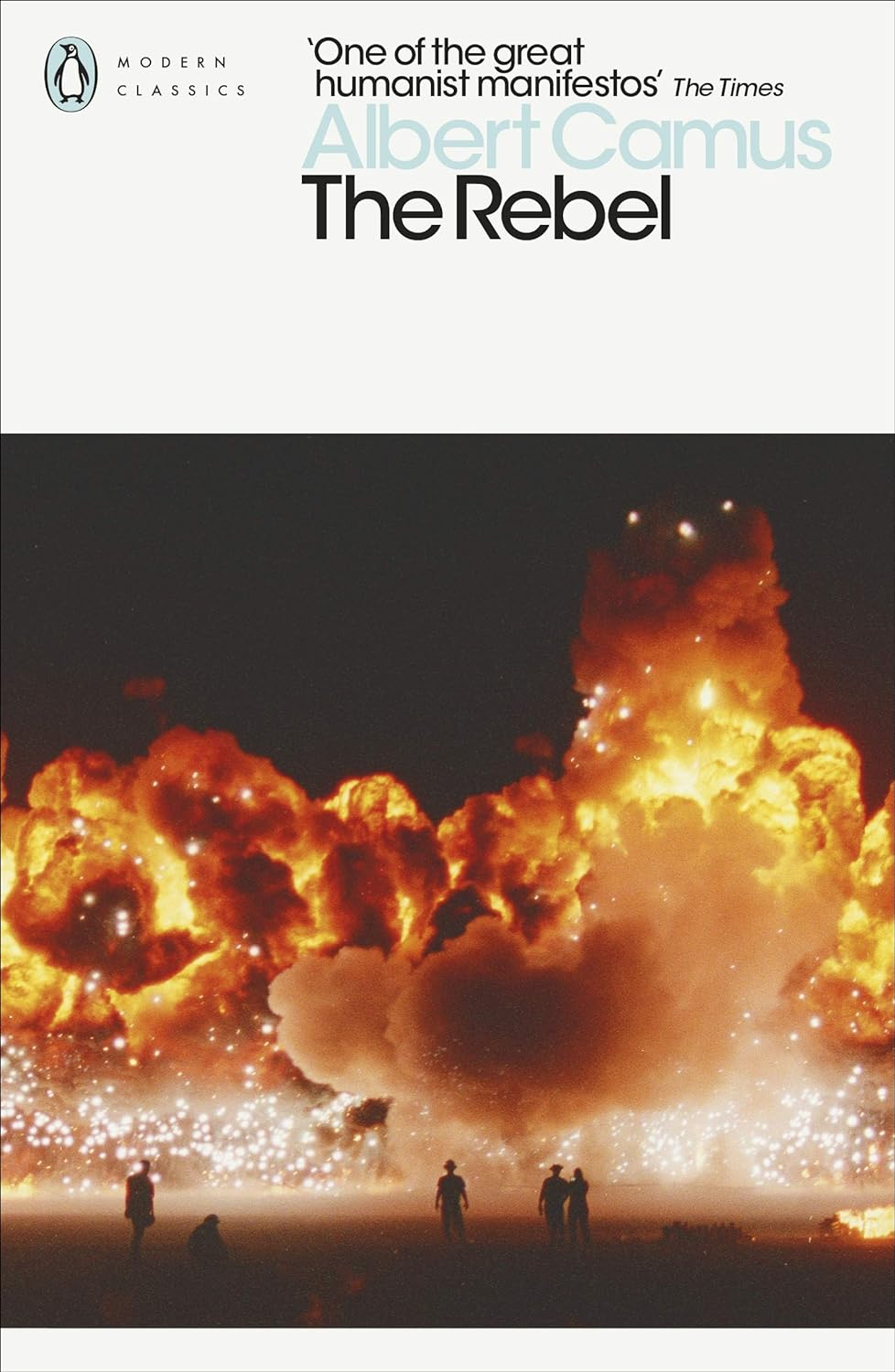
Albert Camus’ The Rebel
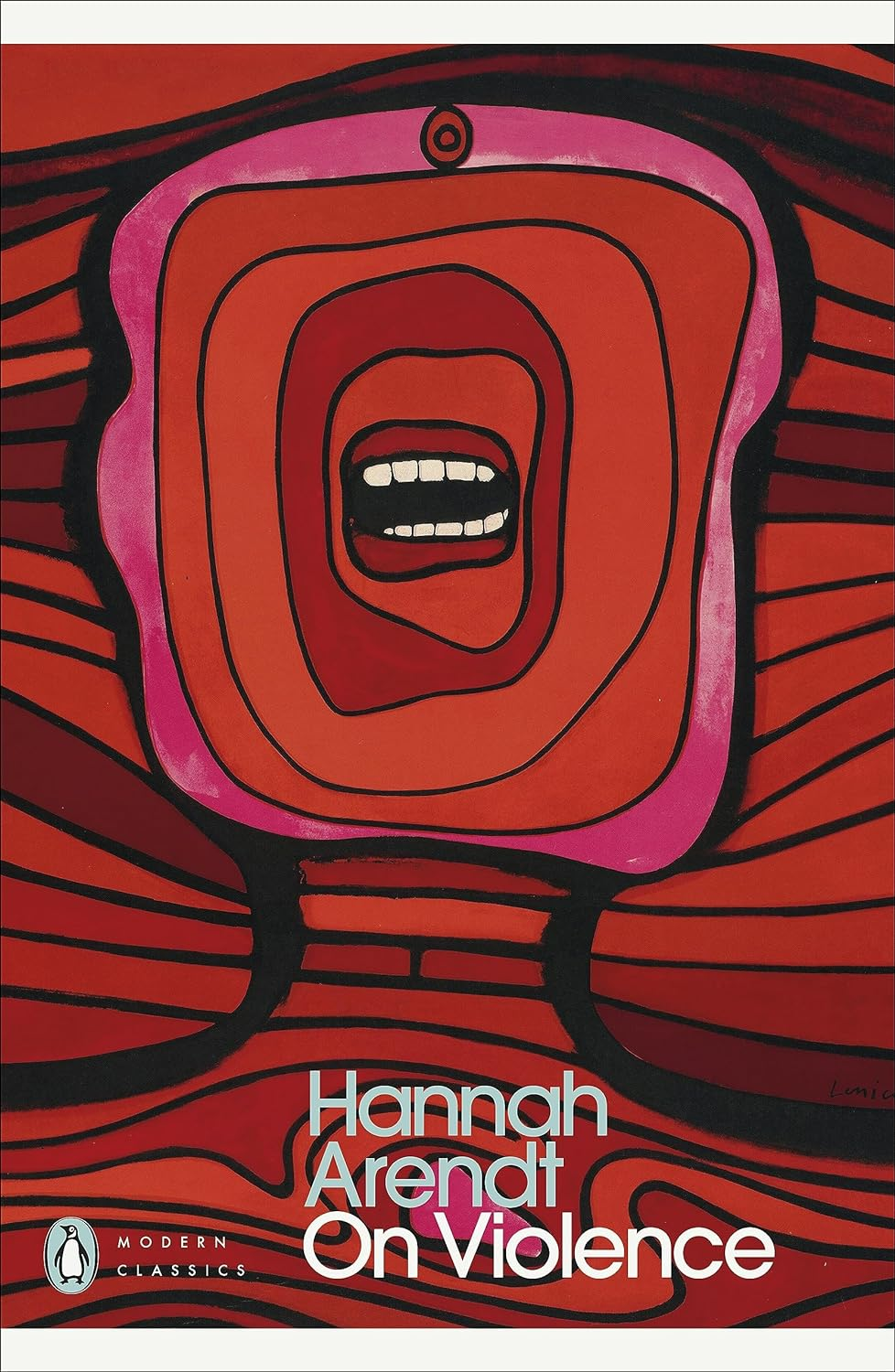
Hannah Arendt On Violence
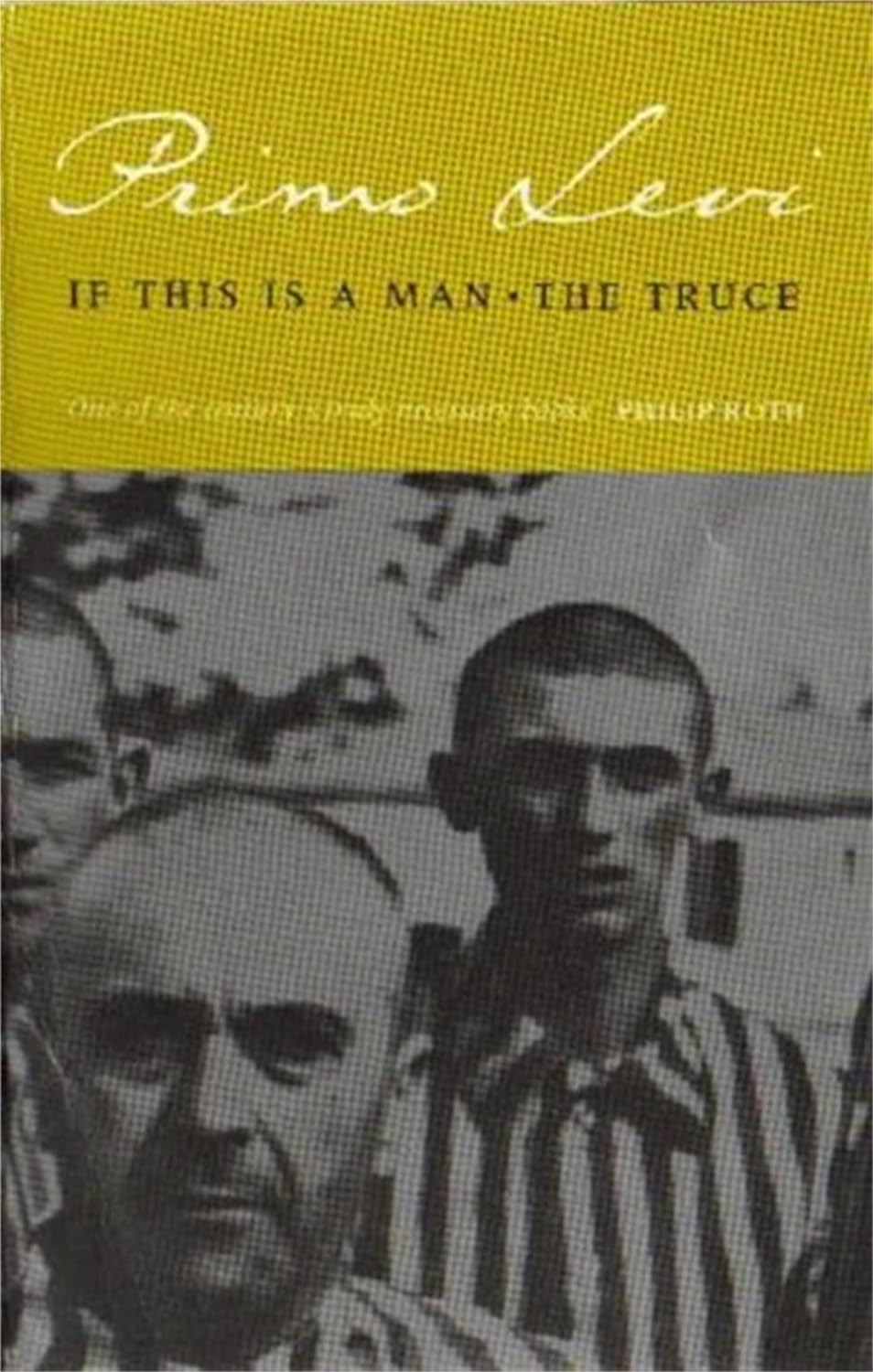
Primo Levi’s Is This a Man
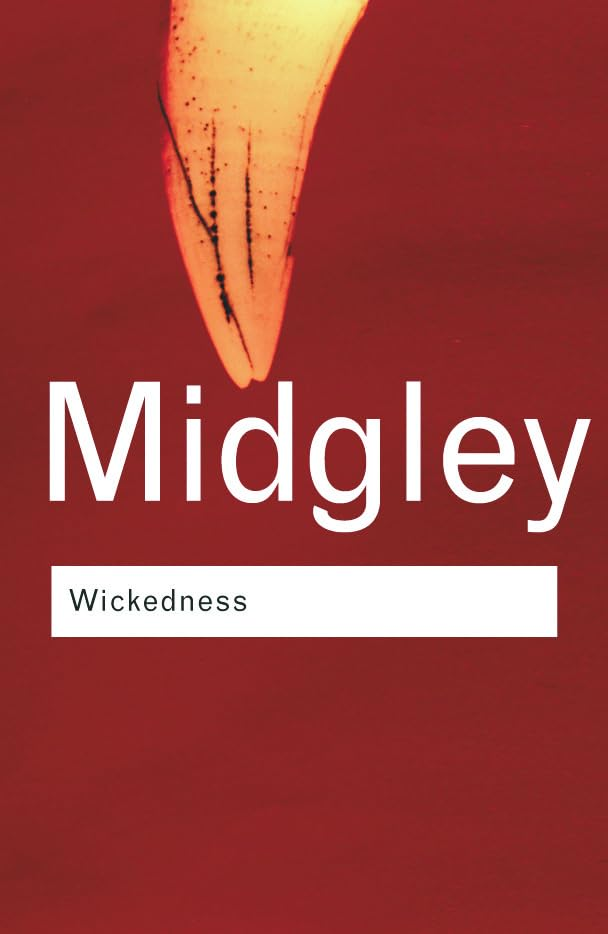
Mary Midgley’s Wickedness
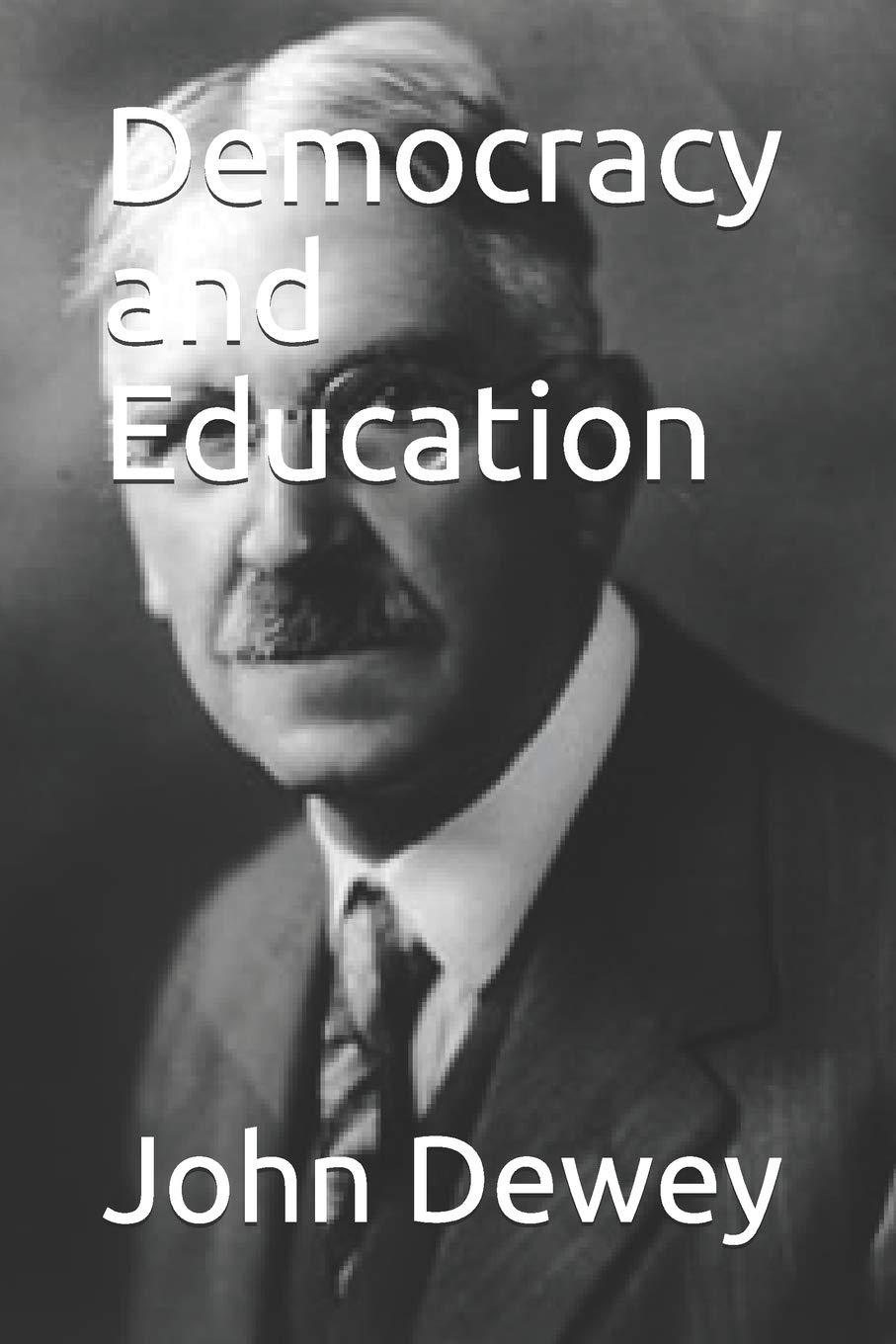
John Dewey’s Democracy and Education
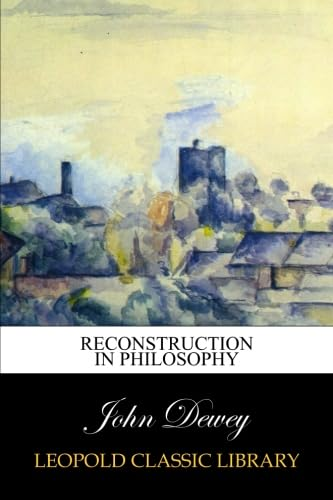
and Reconstruction in Philosophy (sorry, I added a sixth book)
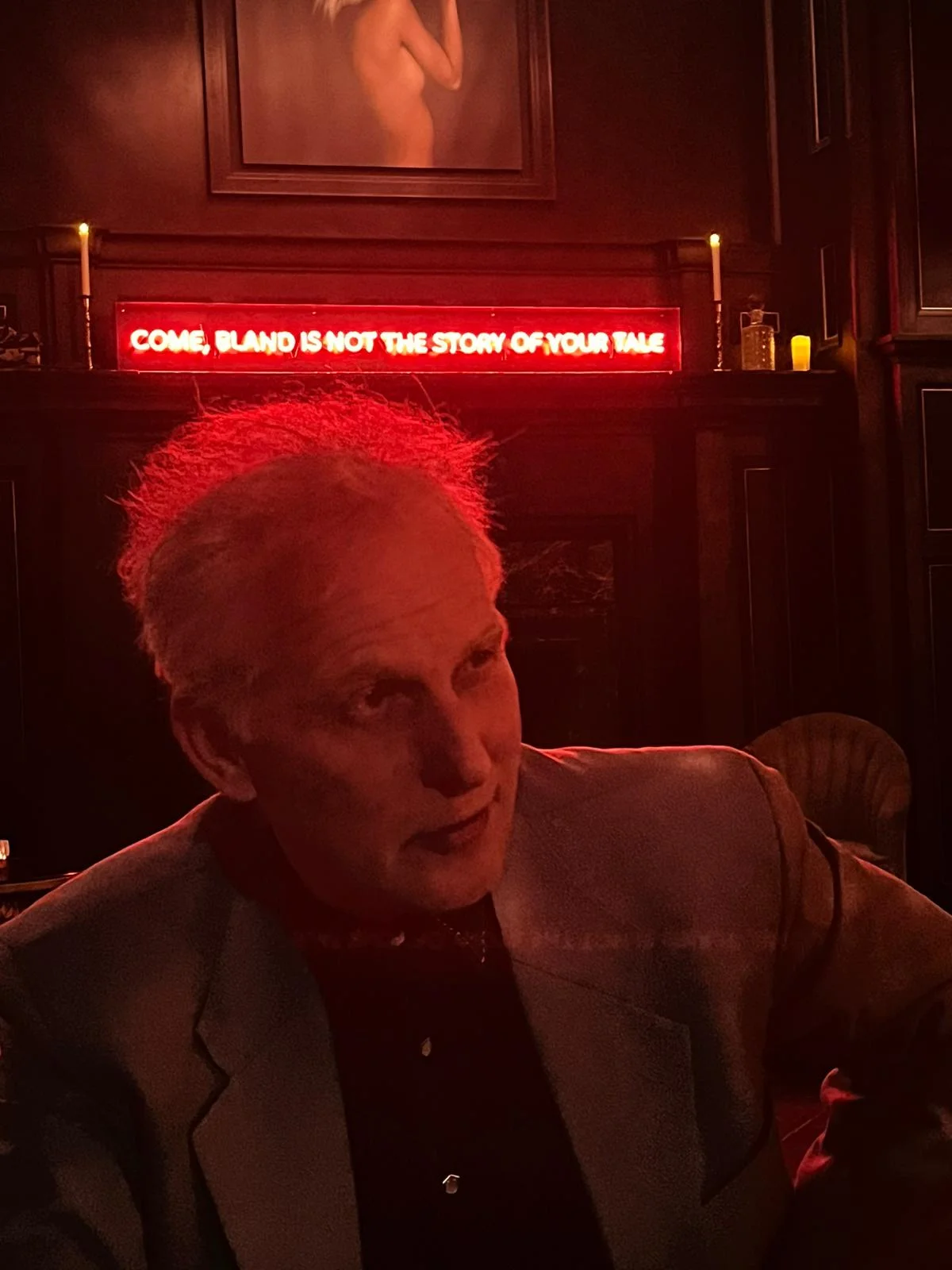
ABOUT THE INTERVIEWER
Richard Marshall is biding his time.
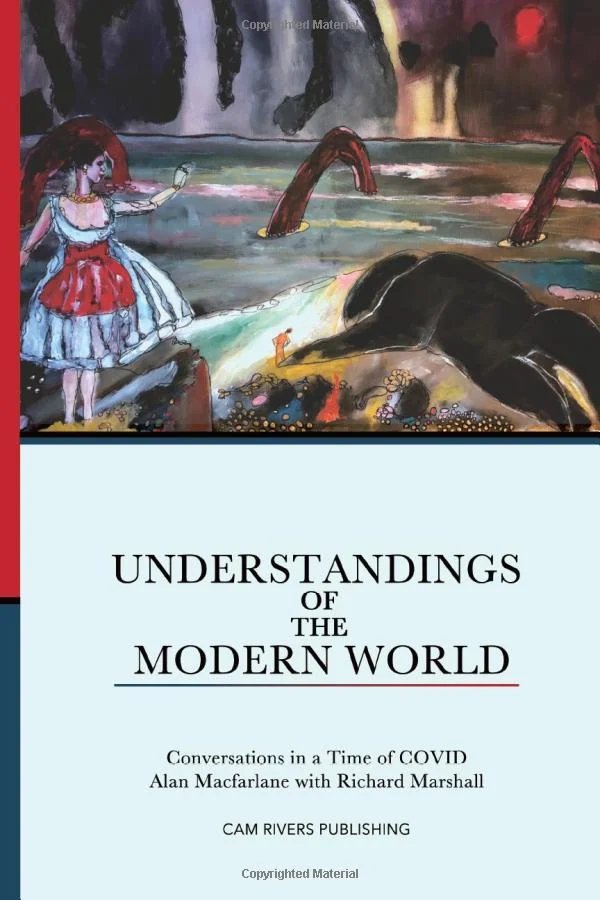
Buy his third book here, his second book here or his first book here to keep him biding!
End Time series: the themes
Peter Ludlow's 'Wait... What?'
Walter Horn's Hornbook of Democracy Book reviews series
Huw Price's Flickering Shadows series.
Steven DeLay's Finding meaning series
Josef Mitterer's The Beyond of Philosophy serialised